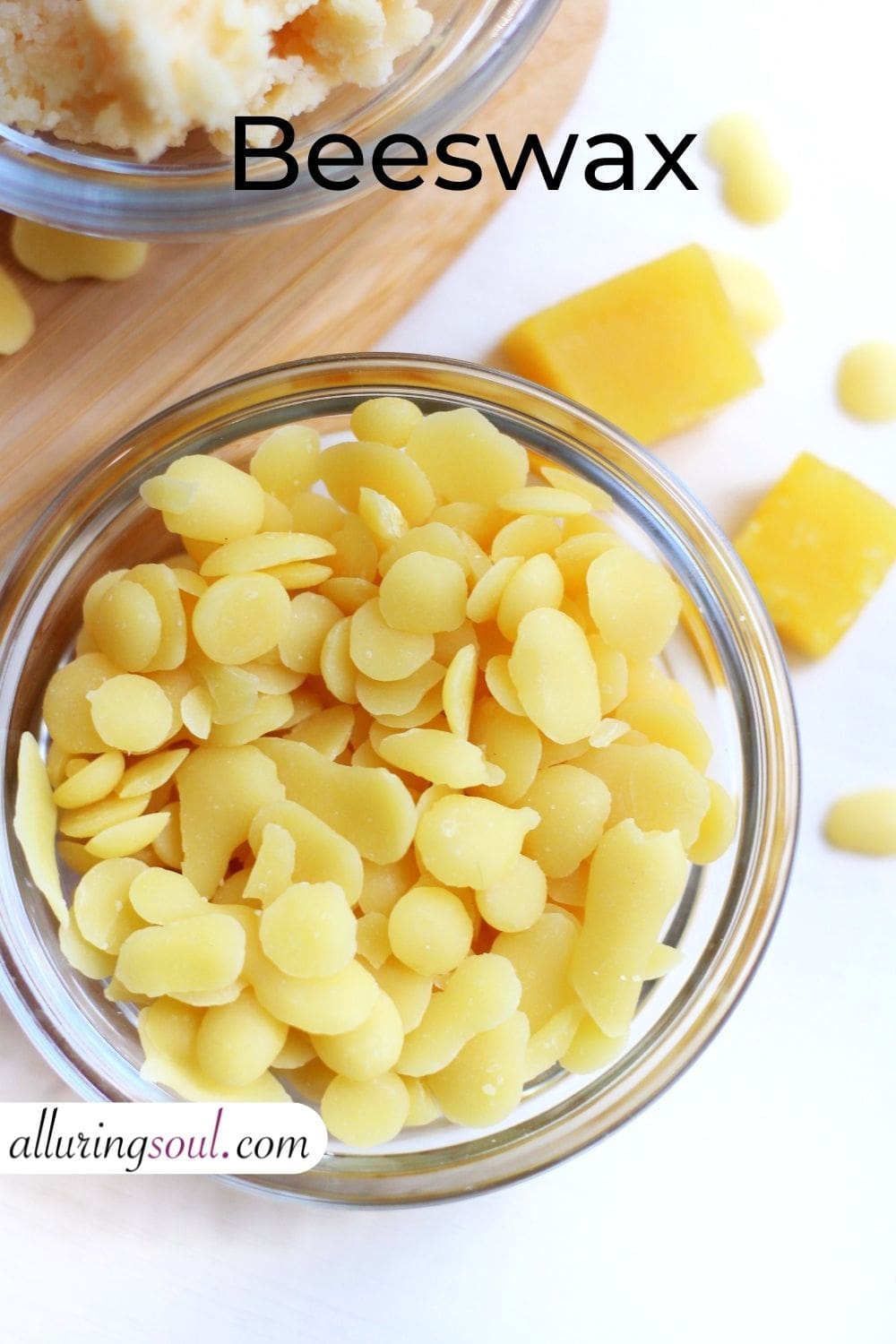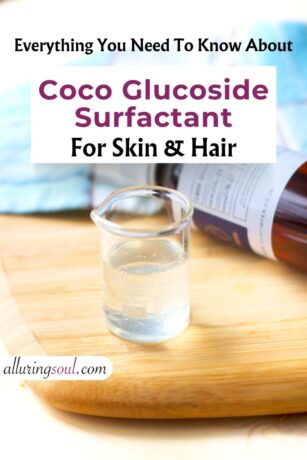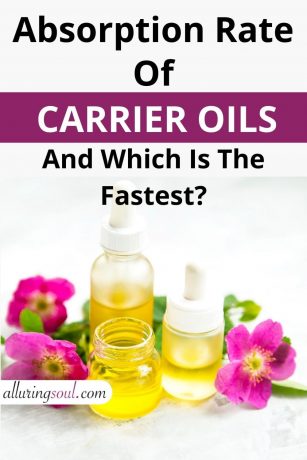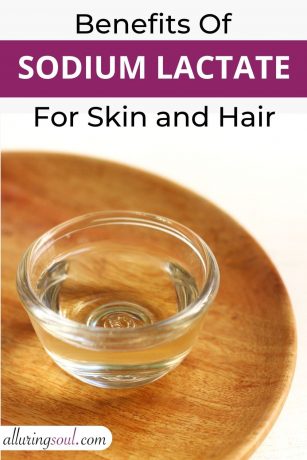When it comes to skin, shea butter delivers ample hydration, protects it from sun damage, improves collagen production, and provides healing properties for skin conditions, whereas beeswax restores the skin barrier, heals chapped lips, accelerates wound healing, and shields it from bacteria or other infection-causing microorganisms.
For hair, shea butter adds moisture to strands, prevents breakage, and reduces scalp conditions, whereas beeswax seals hair to hide split ends, reduces frizz, smoothes out the strands, and is a wonder product for curly hair.
Shea Butter Vs Beeswax – How Are They Prepared?
Shea butter is a plant extract derived from the nuts of the shea tree, native to Western Africa. Depending on whether the butter will be refined or unrefined, they go under different methods of processing. Refined shea butter is prepared by exposing it to high heat and going through a refining process, whereas unrefined shea butter is prepared using traditional handmade methods.
Beeswax is a waxy substance that is acquired in liquid form from the wax glands present in the abdomen of the younger worker bees. The liquid then solidifies into scales. Bees have to feed on honey for them to produce beeswax.
Shea Butter Vs Beeswax – How Do They Moisturize Skin?
Shea butter is a proven natural moisturizer. It contains fatty acids such as linoleic acid, oleic acid, stearic, and palmitic acids. And when they get absorbed into the skin, they help in boosting moisture levels for the skin. Shea butter also traps the moisture and restores the skin barrier, thus increasing its capacity to hold moisture for a longer period.
Whereas beeswax has proved its ability to reduce transepidermal water loss, meaning it locks the moisture in our skin and doesn’t let it escape. It does so by forming a protective layer over the skin. It’s also a humectant, so it draws water to the skin. All these characteristics thus help in keeping your skin well-moisturized and hydrated. In this process, they also aid in softening the skin texture.
Shea Butter Vs Beeswax – How Do They Treat Eczema?
The bioactive ingredients in shea butter are responsible for its anti-inflammatory properties. This helps to reduce various symptoms associated with eczema, like skin swelling, itchiness, and redness. It also repairs the skin at the molecular level to reduce the appearance of this type of inflammatory skin issue. A 2009 study has further concluded that shea butter is an effective option for curing eczema.
The flavonoids and phenolic acids present in beeswax contribute to the antiseptic and anti-inflammatory properties of this product. It shields the skin against common skin conditions such as eczema, psoriasis, and dermatitis. A small study has even revealed that using beeswax in combination with raw honey and olive oil regularly has led to the improvement of these skin issues.
Shea Butter Vs Beeswax – Why Are They Used In Lip Balm?
Shea butter is a common ingredient in lip balm as it is super effective in treating dry and chapped lips. The fatty acids and antioxidants of the butter banish the dryness from the lips thus giving smooth and plump lips.
Beeswax is a non-negotiable ingredient in creating most lip balms due to the myriad of benefits it provides the lips. It heals the dryness of the lips with moisture and acts as a natural sunblock to protect them from harmful UV rays. It also acts as a thickener for creating lip balms.
Shea Butter Vs Beeswax – Do They Promote Hair Growth?
The anti-inflammatory properties of shea butter ensure a healthy scalp by repairing the scalp conditions and strengthening the hair follicles. And strong and healthy hair follicles better the quality of hair and promote more hair growth.
Beeswax is anti-inflammatory, antioxidant, and anti-bacterial. All these properties will help to improve the hair quality leading to more hair growth. A 2016 study has shown a significant increase in hair length using a hair wax containing beeswax for a month. However, more science-backed studies are needed for this claim.
Shea Butter Vs Beeswax – Do They Repairs Hair Split-ends?
Shea butter, with its enriching moisturizing properties, aids in protecting hair from breakage and split ends. With the presence of Vitamin A and E, the butter repairs all the damages that can lead to brittle hair and ultimately split ends. A study has also proved it makes hair strands more resistant to breakage.
Beeswax is not as effective as shea butter for split ends, but they have the ability to seal the strands with moisture that successfully hides the dried and brittle split ends since their waxy texture smoothes and gives moisture to the hair.







No Comments